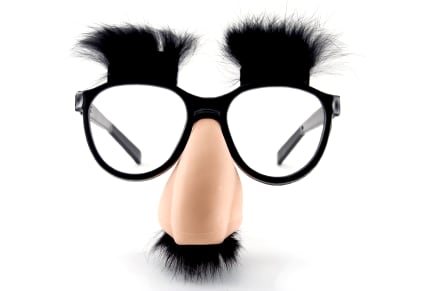
The movie Borat was a hit at the box office. Funny, if a bit crude, it pokes fun at almost everyone, but especially at anti-Semites. I had my own “Borat moment” as a teenager in a public high school, and it caused me to start on my path to observant Judaism.
I was born into a typical American assimilated family – our Jewish observance consisted of attending synagogue three times a year (twice on Rosh Hashana, once on Yom Kippur), lighting Chanukah candles, and holding the Passover seder. Otherwise we saw ourselves as more or less the same as everyone else.
I started to observe the mitzvot (the commandments) at the age of 17, but of course my exploring Orthodoxy started much earlier than that. It was a long process and involved a number of different events – but one particular event stands out in my mind. It’s the one I most credit with starting me on the path to greater observance.
At 15 I attended a public high school, where the population consisted of about one quarter Jewish kids, but for some reason I found that almost all of my friends were non-Jews. One day we had an unexpected free period, so a bunch of us went to the library and hung out at a back table. The conversation meandered and people started telling jokes. One of the guys looked at me, the only Jew in the group, and asked permission to tell a joke about Jews. Being fifteen and wanting more than anything to belong, I of course assented. “How bad could it be?” I thought to myself – maybe something about big noses or being cheap – nothing I felt I couldn’t handle.
I have to explain at this point that I had absolutely no knowledge whatsoever of Jewish history – both ancient or modern – and my grasp of what happened in World War II was rudimentary. Growing up in a middle-class household I was also protected from the knowledge, let alone the experience, of the cruelties of the outside world. So you will understand my reaction to the following “joke” my classmate related.
“How many Jews can you fit into a Volkswagen?”
“50, two in the passenger seats and 48 in the ashtray”.
I reacted with neither laughter nor disgust. I didn’t understand the joke. I had never heard of the Holocaust and I had absolutely no idea what possible connection there could be between Jews and ashes.
The other kids wanted to move on quickly to another topic, but I wouldn’t let them. I knew I had been insulted in some way, but not how, and I didn’t want to let them get off the hook. I insisted that they explain this “joke”.
In a scene of exquisite poetic justice, the kid who originally told the joke went on to explain to me the rudiments of the Holocaust, and the more he explained the more uncomfortable he became.
I sat there in stunned silence, trying to assimilate what he was telling me about Nazis, and cattle cars, and gas chambers and crematorium.
I was profoundly shocked by this information. But being a teenager, I was also shocked that people I counted as friends could tell a “joke” like that. I felt like someone had pulled the rug out from under me – so much so that I couldn’t even muster the reaction that most people have when hearing an ethnic slur about themselves – shrugging it off and pretending that it doesn’t hurt, even when it does. This of course made my friends even more uncomfortable, and it was with an almost audible sigh of relief that they jumped up at the sound of the bell and hurried to their next class.
I stayed in the library and cut my next class. I don’t remember if I had any coherent thoughts then, but I do remember coming away from that experience in the library with one overwhelming feeling. I couldn’t pretend anymore that I was just like everyone else. Being Jewish meant being different.
This feeling led to my paying more attention to what I was hearing in NCSY. In addition to having fun at the social activities, I started to think seriously about whether I, too, could join the ranks of the observant Jews who were now my new role models.
A lot of people helped me on my journey to becoming an observant Jew. I have no doubt, though, that my “friends” who told an unfortunate ethnic joke that day in the library started me on my way.
Rachel Ben David is a freelance writer and translator. She lives in Peduel, a yishuv in the Shomron, with her husband and three children. She writes about life in Israel at her blog westbankblog.blogspot.com.
The words of this author reflect his/her own opinions and do not necessarily represent the official position of the Orthodox Union.

